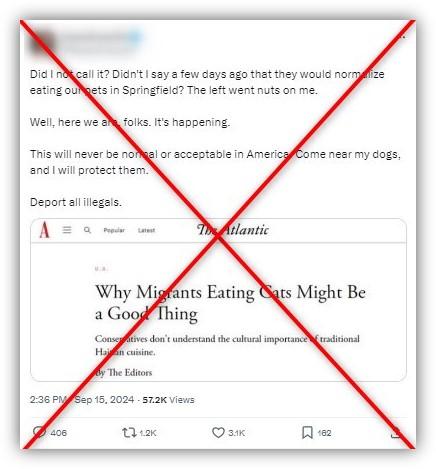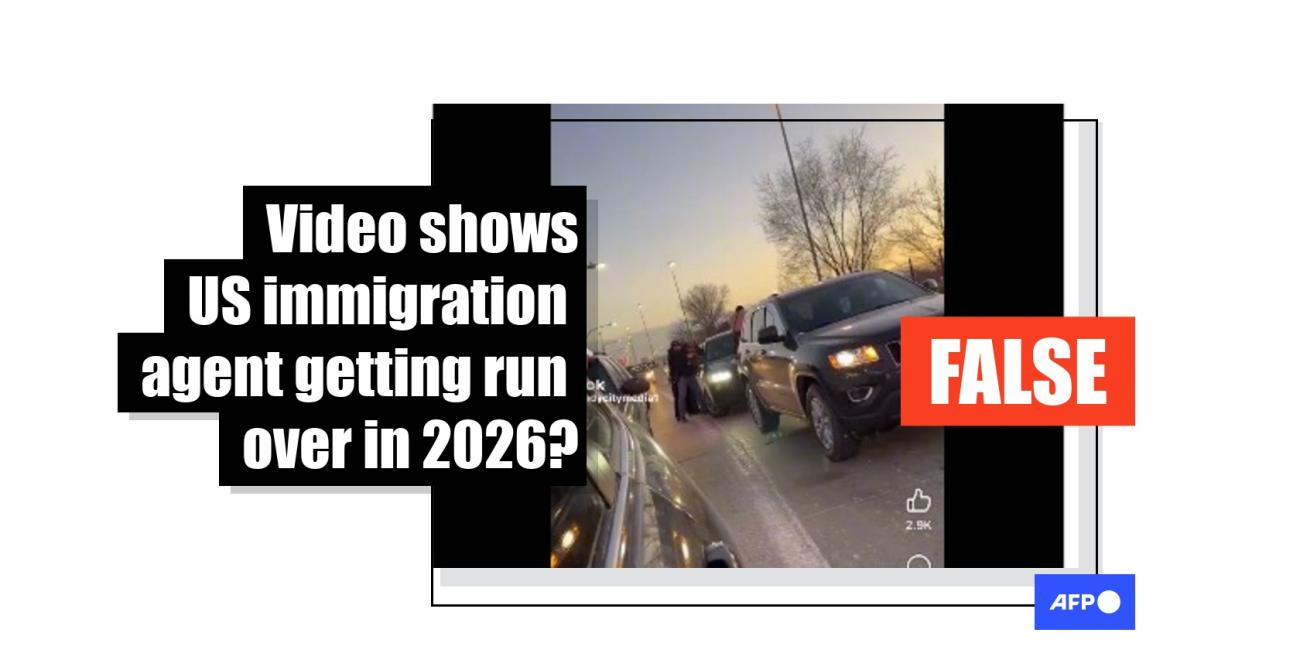
Fake Atlantic headline spreads as conservatives push anti-migrant conspiracy theories
- This article is more than one year old.
- Published on September 18, 2024 at 21:27
- 2 min read
- By Bill MCCARTHY, AFP USA
"Why Migrants Eating Cats Might Be A Good Thing," says what appears to be a headline from The Atlantic, shared on X on September 14, 2024.
A subheading on the article, which is credited to "The Editors," reads: "Conservatives don't understand the cultural importance of traditional Haitian cuisine."
The purported screenshot spread across X, with users accusing the magazine of trying to "normalize" eating people's pets.
"Did I not call it? Didn't I say a few days ago that they would normalize eating our pets in Springfield? The left went nuts on me," says one September 15, 2024 post. "Well, here we are, folks. It's happening. This will never be normal or acceptable in America. Come near my dogs, and I will protect them. Deport all illegals."

The posts come as Republicans have promoted conspiracy theories that Haitian immigrants in Springfield, Ohio are eating people's dogs, cats and other pets -- claims that local officials have repeatedly said are unfounded. Trump amplified the allegations on his Truth Social platform and again during the September 10, 2024 debate against Kamala Harris.
"In Springfield, they're eating the dogs, the people that came in. They're eating the cats," he said during the ABC debate. "They're eating the pets of the people that live there. And this is what's happening in our country."
The bogus rumors rely on a mix of unrelated crime reports, out-of-context images and baseless allegations, an AFP investigation found. But they have scarred Haitians in the area, some of whom told AFP they are fearing for their lives. Dozens of bomb threats have targeted the town, causing multiple schools to evacuate.
The Atlantic, meanwhile, never published the headline declaring migrant pet-eating "a good thing."
"This is fake," said Anna Bross, the outlet's senior vice president of communications, in a September 17 email. "It is not a screenshot of an actual Atlantic article. We have published no such thing."
Bross told AFP the magazine has reported the image as a fake and a trademark infringement. She added that social media users looking to check if a headline is authentic can always consult their website.
"It's remarkably easy to verify if something is real -- or not -- by visiting The Atlantic and searching our site."
A search of the website turned up no results matching the made-up headline (archived here). Nor did an advanced search of Google (archived here).
AFP has previously debunked other fabricated Atlantic headlines, including here, here and here.
Copyright © AFP 2017-2026. Any commercial use of this content requires a subscription. Click here to find out more.
Is there content that you would like AFP to fact-check? Get in touch.
Contact us




